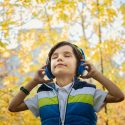Music has long been celebrated for its ability to uplift the human spirit, evoke emotions, and foster creativity. Beyond its artistic and cultural significance, music also holds immense potential as a powerful tool for cognitive development in children. Research has shown that engaging in music education—from playing instruments to singing in choirs—can have profound effects on various aspects of cognitive functioning, including memory, attention, and language skills. In this article, we’ll delve into the fascinating connection between music education and cognitive development in children, exploring the benefits and strategies for harnessing the transformative power of music in education.
Enhancing Brain Plasticity:
Music education has been found to promote neuroplasticity—the brain’s ability to reorganize and adapt in response to experiences and stimuli. Learning to play an instrument, for example, requires intricate coordination between sensory, motor, and cognitive processes, stimulating the development of neural connections and strengthening brain networks associated with auditory processing, motor control, and executive function.
Improving Memory and Attention:
Engaging in music education has been linked to improvements in memory and attentional control, which are essential for academic success. Learning to read and interpret musical notation, memorize melodies and rhythms, and coordinate multiple musical elements trains cognitive skills such as working memory, auditory processing, and sustained attention, leading to enhancements in academic performance and cognitive functioning.
Strengthening Language Skills:
Music and language share common neural pathways and cognitive processes, making music education a valuable tool for promoting language development in children. Singing, listening to music, and engaging in rhythmic activities facilitate phonological awareness, vocabulary acquisition, and expressive language skills, laying a strong foundation for literacy and communication abilities.
Fostering Emotional Regulation:
Music has the power to evoke a wide range of emotions and moods, providing opportunities for children to explore and regulate their emotional experiences. Engaging in music-making activities, such as singing, playing instruments, or composing music, promotes emotional expression, self-awareness, and stress reduction, fostering resilience and emotional well-being in children.
Cultivating Creativity and Problem-Solving Skills:
Music education encourages children to think creatively, experiment with musical ideas, and explore novel solutions to musical challenges. Whether improvising melodies, composing original pieces, or collaborating with peers in ensemble settings, children develop problem-solving skills, adaptability, and creative thinking abilities that transfer to other domains of learning and life.
Building Social Connections:
Music-making is inherently social, providing opportunities for collaboration, teamwork, and interpersonal communication. Participating in music ensembles, choirs, or group lessons fosters social connections, cooperation, and empathy, promoting positive peer relationships and a sense of belonging in children.
Boosting Self-Esteem and Confidence:
Mastering musical skills and achieving musical milestones can boost children’s self-esteem and confidence, fostering a sense of accomplishment and pride in their abilities. Music education provides a supportive and nonjudgmental environment where children can take risks, make mistakes, and learn from feedback, building resilience and self-efficacy in the process.
Promoting Cultural Awareness and Appreciation:
Music is a universal language that transcends cultural boundaries, providing children with opportunities to explore diverse musical traditions, styles, and genres. Exposure to multicultural music experiences promotes cultural awareness, appreciation, and respect for diversity, broadening children’s perspectives and fostering a sense of global citizenship.
Integrating Music Across the Curriculum:
Integrating music education across the curriculum enhances interdisciplinary learning and reinforces connections between music and other academic subjects. Incorporating music into lessons, such as using songs to teach math concepts or exploring historical periods through musical compositions, enriches learning experiences and promotes holistic cognitive development in children.
Encouraging Lifelong Engagement with Music:
By instilling a love of music and fostering lifelong engagement with the arts, music education lays the foundation for a lifetime of cognitive enrichment, creativity, and cultural enrichment. Whether children pursue music professionally or as a recreational hobby, the benefits of music education endure throughout their lives, shaping their identities, aspirations, and contributions to society.
Music education holds immense potential as a catalyst for cognitive development, offering a multifaceted approach to learning that engages the mind, body, and emotions. By harnessing the power of music to enhance brain plasticity, memory, attention, language skills, and emotional well-being, educators and parents can cultivate well-rounded individuals who are equipped with the skills and qualities needed to thrive in an ever-changing world.

Comments are closed